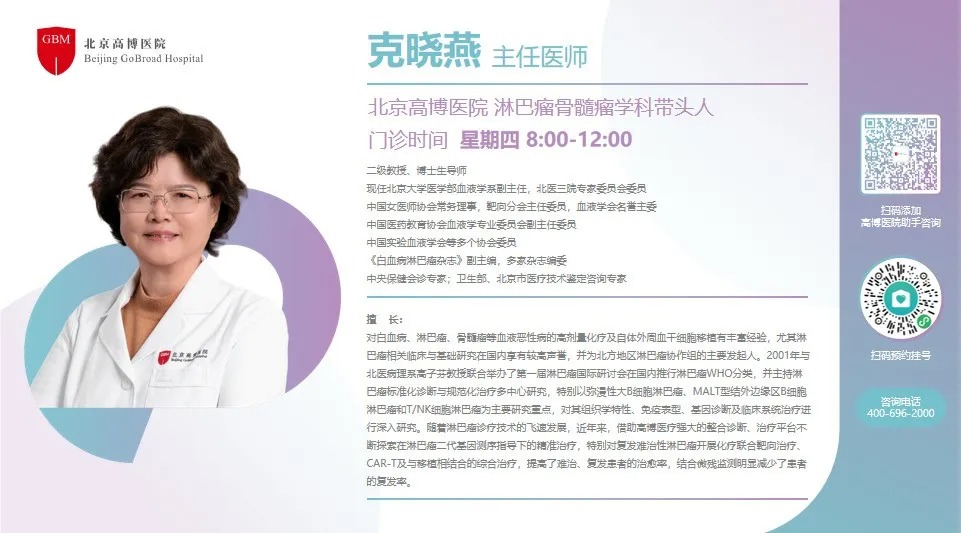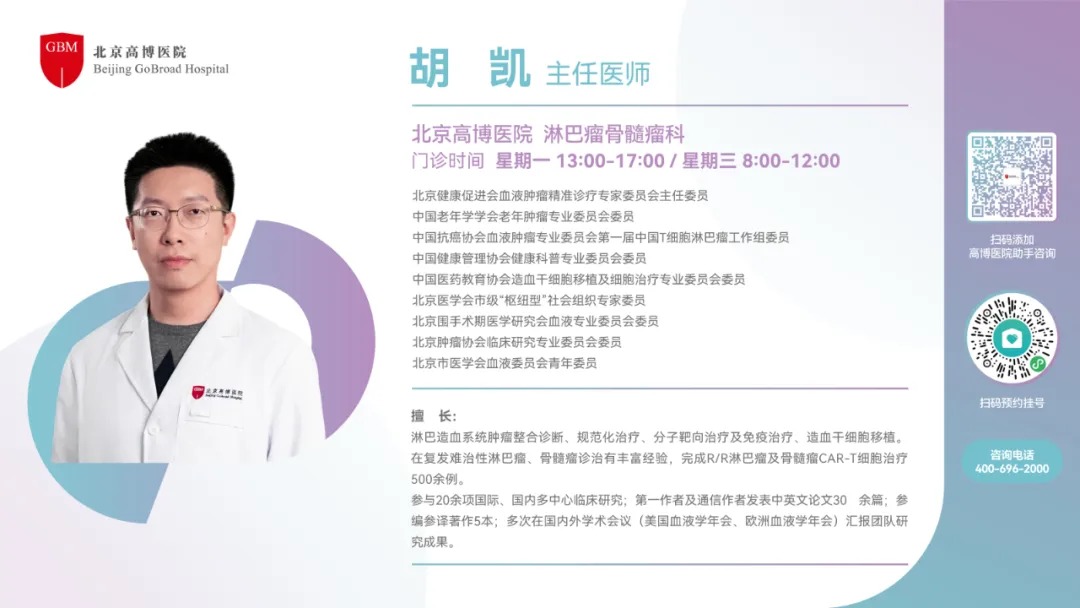Focus on the latest advances in lymphoma treatment, bringing new hope for therapy!
Lymphoma is a malignant tumor originating from the lymphoid hematopoietic system, characterized by a high incidence rate, strong concealment, and difficulty in diagnosis. September 15th, which just passed, marked the 21st "World Lymphoma Day," with the theme "We Can't Wait–to Focus on Our Feelings," calling for lymphoma patients to not only focus on active treatment but also pay attention to their quality of life. This aims to raise public awareness and attention to lymphoma. So, what new advances in lymphoma treatment have emerged at Beijing GoBroad Hospital?
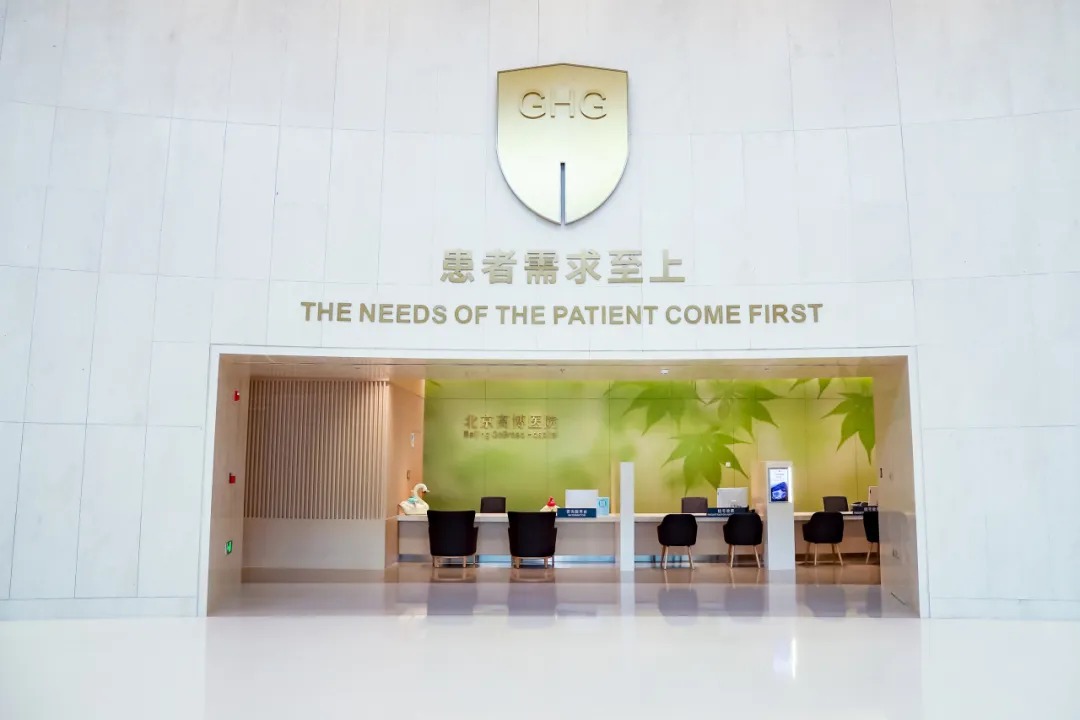
The Development of Lymphoma Treatment
In the 1940s and 1950s, chemotherapy began to emerge as the main method for cancer treatment. The advent of CD20 monoclonal antibodies marked the beginning of a new era in targeted therapy. In 2015, after former U.S. President Obama introduced the "Precision Medicine Initiative" in his State of the Union address, targeted therapy and cell immunotherapy were fully initiated, and CAR-T therapy was introduced into clinical treatment during this period.
With the increasing incidence of lymphoma, treatment methods have also been continuously upgraded. In recent years, targeted therapy and cell immunotherapy have surged, with new targeted drugs and cell immunotherapies such as monoclonal antibodies, bispecific antibodies, CAR-T, and CAR-NK therapies continuously entering clinical practice. These new treatments have brought hope to elderly, frail patients who cannot tolerate chemotherapy, as well as to those with chemotherapy-resistant conditions. For example, in the chemotherapy era, about 30% of patients with diffuse large B-cell lymphoma (DLBCL) did not respond to treatment. However, with the intervention of new targeted drugs and cell immunotherapy, an increasing number of patients have been cured. We have reason to believe that in the future, lymphoma will become a treatable disease.
Continuous Exploration and Innovation to Improve Treatment Success Rates
Beijing GoBroad Hospital is a research-based hospital with a strategic focus on diagnosing and treating complex and severe conditions, clinical research, and the industrial transformation of biomedicine and medical devices. Hematologic oncology is a specialized feature of the hospital. Professor Ke Xiaoyan and Professor Hu Kai's team, based on GoBroad Hospital's powerful integrated diagnostic and treatment platform, continues to explore precision treatments guided by second-generation gene sequencing for lymphoma, particularly focusing on chemotherapy combined with targeted therapy, CAR-T, and comprehensive treatment involving transplantation for relapsed and refractory lymphoma. This approach has significantly improved the cure rate for patients with difficult-to-treat and relapsed conditions, while also reducing the relapse rate through minimal residual disease monitoring.
In June this year, the team of Professor Ke Xiaoyan and Professor Hu Kai from the Lymphoma and Myeloma Department at Beijing GoBroad Hospital published a paper titled "Salvage CD20-SD-CART therapy in aggressive B-cell lymphoma after CD19 CART treatment failure" in Frontiers in Oncology. The study explored the effects of sequential CD20 CAR-T therapy in B-cell lymphoma patients who had failed CD19 CAR-T treatment.
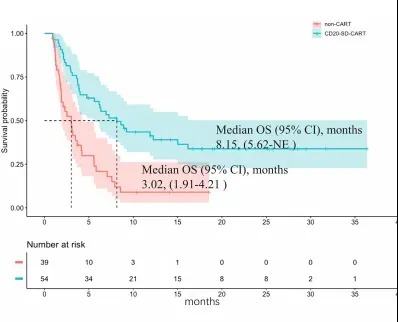

The overall survival (OS) and progression-free survival (PFS) of the sequential CD20 CAR-T group and the non-CAR-T group
The study shows that for patients who failed CD19 CAR-T treatment, sequential CD20 CAR-T therapy is more effective than traditional salvage chemotherapy. It can increase the complete remission rate and significantly extend both progression-free survival and overall survival. For more details, click the link: (Professors Ke Xiaoyan/Hu Kai's team: Sequential CD20 CAR-T therapy is superior to salvage chemotherapy in B-cell lymphoma patients who failed CD19 CAR-T treatment).
Relapsed or refractory (R/R) T lymphoblastic leukemia/lymphoma (T-ALL/LBL) patients have poor prognosis and limited treatment options. Allogeneic hematopoietic stem cell transplantation (Allo-HSCT) is an effective method for treating relapsed or refractory hematologic malignancies, but many patients lose the opportunity for transplantation due to inadequate disease remission. To address this, Professors Ke Xiaoyan and Hu Kai's team at Beijing Gaobo Hospital developed a new treatment regimen, Dara+Vene+CAGE, for R/R T-ALL/LBL patients as bridging therapy before Allo-HSCT or CAR-T therapy.
This regimen combines targeted therapy and traditional chemotherapy. Preliminary studies show high remission rates and good safety, particularly for ETP subtype patients. For more details, click the link: (Professors Ke Xiaoyan and Hu Kai's team: Dara+Vene+CAGE regimen as bridging therapy before transplantation or CAR-T in T-ALL/LBL patients is safe and effective, promising results!).
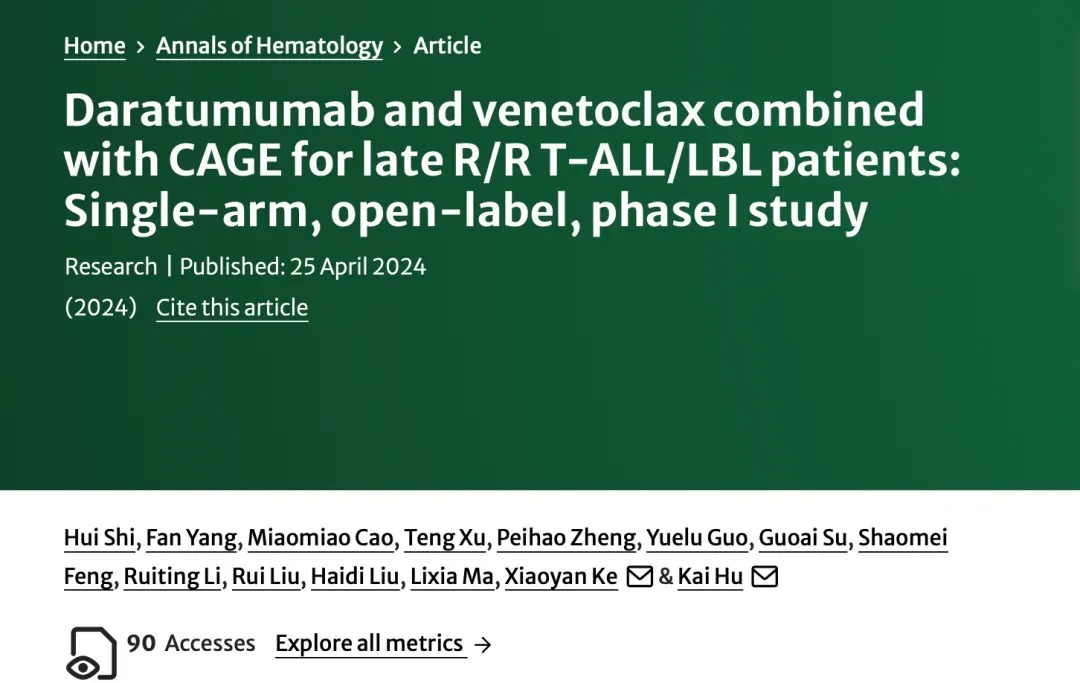
(doi:10.1007/s00277-024-05775-z.)
Providing High-Quality Treatment to Patients with Precision Diagnostics and Comprehensive Care
GoBroad Hospital has a comprehensive diagnostic platform that integrates pathology, cytomorphology, cytogenetics, flow cytometry, and molecular biology, allowing patients to select more targeted treatment options. The hospital also has an independent clinical research center, creating opportunities for participation in various clinical trials and providing convenience for patient treatment.
The team consistently adheres to the philosophy of "patient needs first," aiming for cures rather than just short-term treatment outcomes. By integrating multidisciplinary support and collaboration, the team widely adopts and applies advanced technologies such as targeted drugs and cellular immunotherapy, offering more precise, efficient, and personalized medical services to patients.
GoBroad Hospital has been dedicated to the exploration of lymphoma diagnosis and treatment and has never stopped. Looking ahead, the hospital will continue to focus on frontline clinical care, leveraging expert diagnostic and treatment skills along with warm, detailed humanistic care to help patients receive more standardized and effective treatment. This, in turn, will light the hope of a brighter life for more lymphoma patients and their families.
Expert Introduction
